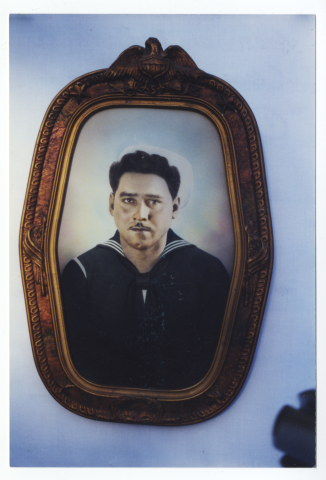
By Patrick Lynch
The story of the Botello brothers – Crisantos, Gregorio, John, Simon and Trinidad, who all served during World War II – is one of honor and bravery. And thanks to another of the brothers, their tales of heroism won’t be lost to time.
Younger sibling Thomas D. Botello wrote a booklet called “Proud I Served” about his brothers’ service in WWII, also detailing his family’s struggles back home. The narratives included present a glimpse into history from the perspective of a Mexican American family during that era.
“Proud I Served” details his family’s history leading up to the war, tracing their lives as sharecroppers on farms in rural Central Texas. He recalls times spent with family and friends working in the towns, noting how the entire clan labored together within the region.
Botello’s parents, Crisostomo E. and Jesusita D. Botello, had 10 boys and two girls. Of the brothers, the five oldest would enter the service.
News of the war reached the Botello family through newspapers, radio reports and word of mouth. Food was rationed, and the family gathered rubber and metal products for the government to purchase.
Botello writes that before the war, his brothers weren’t ideally suited to join the Armed Services, since they lacked an adequate education. To him, the most important prerequisites for being a soldier were “sound reasoning and comprehension,” both attributes secured with a good education. His brothers were denied this because of their ethnic background and social status, he says. Fortunately for Botello and countless other children, a change in attitude by virtue of the war led to a mandate for all kids to attend school.
Because they weren’t in school, the four oldest brothers helped out on the farm and made up the majority of their father’s labor force. As a result, the family felt the impact of the young men’s induction into service especially hard. Their father was forced to give up the farm and move closer to the city, where he was able to find a house on a smaller, 3-acre plot, maintaining a stock of milking cows, pigs, rabbits and fowl single-handedly.
The brothers sent frequent letters, often replete with emotional descriptions of their struggles and experiences. And the Secretary of the War Department sent telegrams reporting injuries and casualties. The Botello family received three of these, each alerting that one of the sons had been wounded in battle.
The family was greatly relieved when the war ended in 1945, but they were still uncertain when the boys would return. Any activity in front of the house raised hopes that maybe one of the brothers was approaching.
Botello also includes excerpts from interviews and diaries of each of his brothers (except for Crisantos, or “Cris,” because Botello apparently didn’t have access to a diary and Cris had died before Botello began conducting interviews). These accounts detailing the various homecomings are often accentuated with homespun details. For example, Gregorio Botello describes in the interview excerpt below the psychological impact the war had on his brothers, which became apparent one time some friends of the family came over for a visit and started asking about the conflict:
I remember that it started with Trine when Mr. Menchaca asked him of the fighting in the war and Trine responded that he just did his part, and told him he didn’t want to talk about what he had seen or done. But I remember especially when they asked John and Simon, they answered about the same as Trine had, and then got up and walked out of the house and isolated themselves under the big oak tree on the side of the house. When I went to see why they had gone out, they told me they didn’t want to stay inside because Mr. Menchaca only wanted to know about the war experience they had had and they didn’t want to talk about it. That’s when I knew they had it pretty rough in their combat actions, or whatever they did in the wars they were involved in. … I remember thinking since I personally didn’t have any combat action while I was in the service, I was in no position to know how one feels going through the war combat action as they did. … [W]e have never talked about their war experiences at all. The most I
ever heard was from family members saying that when they tried to say something about an experience they had, they would get very emotional and couldn’t finish anything they started to say.
Thomas D. Botello’s “Proud I Served” was self-published in 2001.

